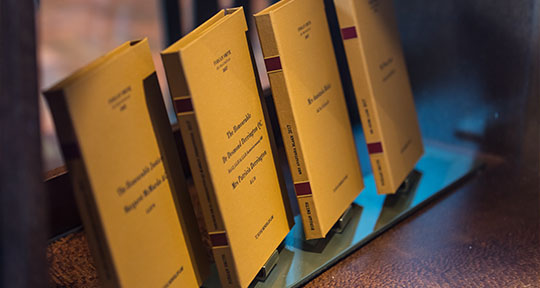UQ Law Research
Our researchers explore a wide range of legal issues of national and international importance. Working individually and with partners across diverse contexts, we're committed to developing law, legal policy and practice to improve society.
Collaborate with us to create reciprocal local and global partnerships, to advance knowledge and enrich communities in Queensland.
Research themes
UQ Law connects people and capabilities across 6 themes that build on our research strengths.
Delve into these themes to discover how our researchers, collaborations, and current projects are developing legal solutions to major global challenges and contributing to the global knowledge base.
Research centres and groups
Our research centres and groups advance legal scholarship and the formation of collaborative links with other disciplines and external partners to provide solutions to global challenges.
These groups are internationally renowned centres of world-leading collaborative research. Explore the latest insights, research, programs and events from our network of researchers.
Partner with us
By fostering rich research partnerships and engaging with fields beyond law such as agriculture, economics, medicine, engineering, business, and psychology, UQ Law researchers are providing depth and impact to national and global outcomes across a range of perspectives.

